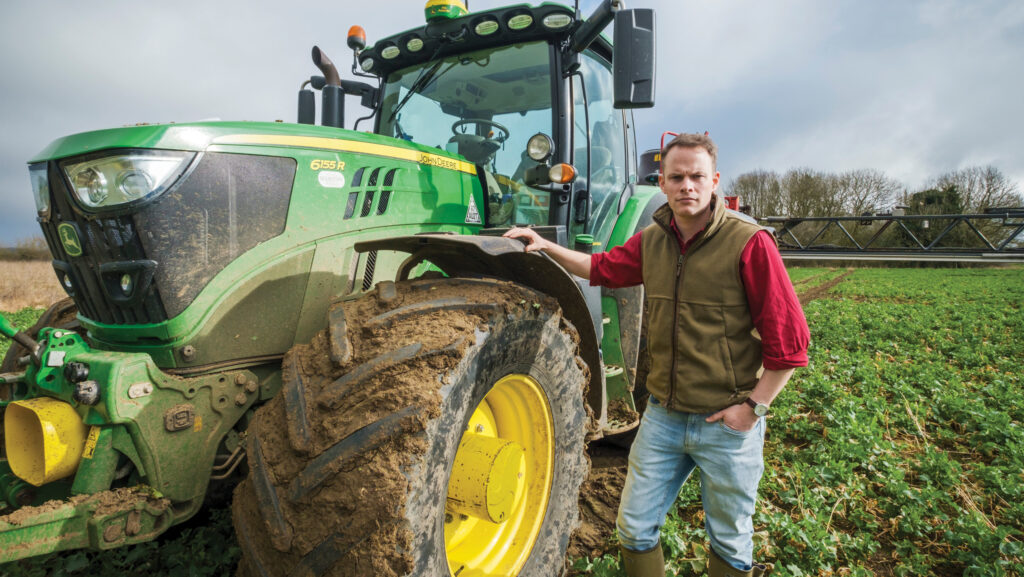Farmer Focus: No chance to take a breath since harvest
 Robert Scott © Jason Bye
Robert Scott © Jason Bye September has nearly concluded and, like most of you, we haven’t had a chance to take a breath since harvest.
In the past few weeks, we have established 380ha of winter cover crops, as well as haylage leys, stubble turnips and oilseed rape.
Store lambs have arrived, hedges are being cut and autumn is here.
See also: 2 farmers’ autumn drilling plans after last year’s wet weather
We finished combining spring beans on 14 September, although there hasn’t been time to blow down the combine yet.
The beans yielded 5.3t/ha over the weighbridge, which is comfortably ahead of budget.
This crop was planted with our Horsch Avatar drill on 21 March 2024, at 3.5in depth into a standing green cover crop, which was terminated with glyphosate on the same day as drilling.
The perfect scenario of a “five-minute stubble” is very evident from our earliest drilled covers.
Those established in the first fortnight of August, as soon as the combine left the field, are growing very well.
They are harvesting sunlight, protecting the soil surface with a well-established canopy and putting a root down at depth.
The cover crops established behind winter wheat (once the balers were gone) are only just emerging and will have their work cut out as the days shorten.
There is no substitute for sunlight and day length.
The summer catch crops established in July have been a very mixed bag. Some are in full flower on lighter land, with some complete failures on heavy land.
For four years we have established a summer catch crop behind vining peas to soak up nitrogen and condition the soil surface ready for direct drilling wheat.
XIt has worked extremely well to date, but this year it has not on heavier land. We will need to rectify this with cultivation prior to drilling.
We began drilling wheat on 18 September, with a carefully thought-out programme.
Contrary to general advice, we try to plant difficult land first to make sure we get a crop established. Autumn rainfall in recent years has not been forgiving.
Blackgrass pressure is managed with a robust herbicide programme and targeted Avadex (tri-allate) on known problem areas.
Our wide rotation allows us to avoid planting winter cereals in fields that are particularly susceptible.


